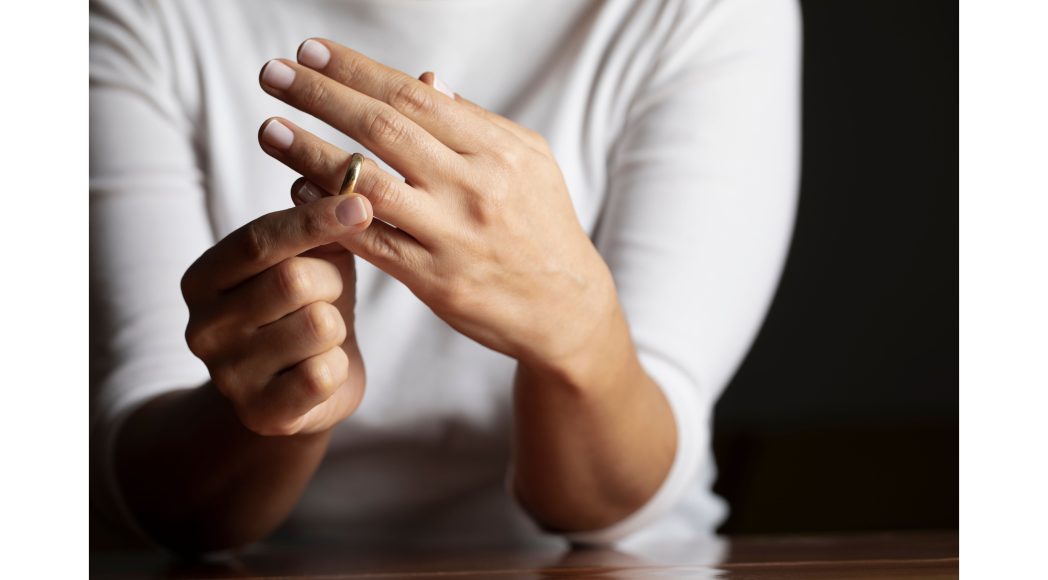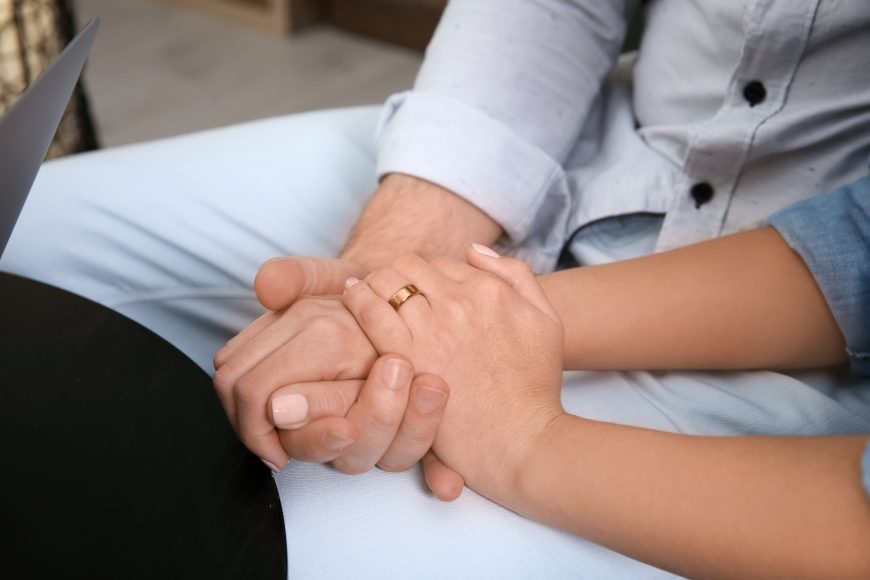When I was 10, my parents explained to me, my brother, and my sister they were separating. We sat in our living room, in a new home we had lived in barely 5 months, to digest the news. Over the next few months, we started adjusting to a new schedule with each of our parents, eventually a new school, and a new normalcy set in.

We went to counseling to understand our thoughts and feelings. But divorce on children is trauma, and it has taken me years to unpack and understand how it affects my view of marriage. Beginning with, it was tied up in fear.
Fast forward almost 15 years from that original moment, and enter my future husband— a divorcee’ dad with two children of his own. For years I vowed to myself if I ever married, I never wanted my children to go through what I did. I would openly say, “I never want to end up like my parents.” I didn’t understand the gravity of what it meant until I became a parent.
When my husband and I started dating, I knew if we ended up married, the odds were not stacked in our favor. If you look at various articles, the divorce rate can range between 45-50% of married couples. It would be his 2nd marriage, my first, which then has the odds of 60% of divorce. By all looks on the outside, we were doomed before it even started. My “divorce is never an option” mindset was harmful, and it took a good therapist to make me realize why.
We had to work through some conflicts, and it was time we needed to bring in a third party. Enter our fantastic therapist, Amy. I would call her more of a coach than a therapist. We were struggling with communicating and doing conflict well. (Yes, I’ve learned there is a “good” way to have conflict.) Through our process, we learned about communicating, validating emotions, giving grace to each other, and avoiding passive-aggressive snide comments.
I let Amy know of my mindset and why I felt the way I did about marriage. She rephrased the question, “so if it’s between your happiness and his happiness and co-parenting versus staying in a marriage that was long over, you’d choose the marriage?” This completely caught me off guard. Was I willing to stay in a terrible marriage to prove it didn’t fail? My mind screamed, yes! And I was totally wrong. I viewed staying together as a positive, even though I witnessed couples “stay together for the kids” who were completely miserable. I also thought having a happy marriage was the ultimate goal. Who doesn’t want a happy marriage?!

If, for some reason, this marriage wasn’t working anymore, this wasn’t fair to anyone involved, but most importantly, our children. It was no longer a healthy marriage. And that was the moment my mind shifted from striving to have a happy marriage to having a healthy marriage. A foundation of a healthy marriage meant a happy marriage came naturally. I had to move past the fear of what failure looked like and what it meant for me as a wife and mother.
We’ve had tough conversations that have lasted into the wee hours of the night. We’ve grown in communicating our needs, our struggles, and asking for help. We’ve learned how to do conflict well, which took practice. (And there are moments we have to work hard at it.) What I hope we’re conveying to our children is mutual respect for each other as people, even during extremely tough times.
Our marriage is far from perfect, and we work every day to choose each other. If we didn’t change course, and I didn’t adjust my thoughts, we would have ended in a ball of flames. I credit Amy for shifting our relationship down a path of growth, becoming better communicators, and validation.
Sometimes marriages don’t work out, and that is okay, too.










